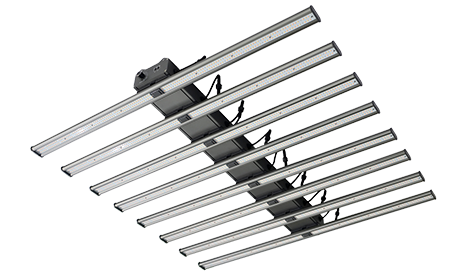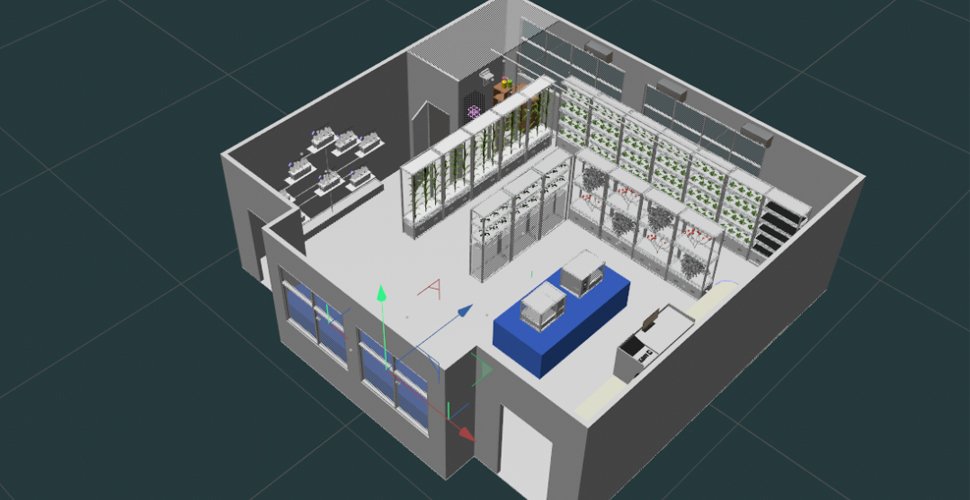With the widespread application of cutting-edge technologies such as big data and artificial intelligence algorithms in the agricultural sector, vertical farming has made significant progress and development as part of the modern agricultural revolution.
By employing advanced biotechnology, precise data analysis methods, and highly automated cultivation management systems, vertical farming has successfully overcome the limitations of traditional agriculture such as natural sunlight, seasonal changes, and temperature variations, achieving continuous and efficient plant production.
This transformation has greatly reduced water consumption, decreased reliance on limited land resources, and thus overturned the agricultural model that has been in place for millennia, freeing it from the constraints of natural conditions.

In recent years, there has been a surge in greenhouse horticulture and home farming across the United States and Canada, bringing the concept of vertical farming to the forefront of the North American stage. Moreover, the pace of technological advancement in this field has been remarkably rapid.
At the same time, China’s formidable industrial strength cannot be underestimated. With a strong manufacturing base and highly efficient supply chain operations, China has firmly established itself as a key player in the industrialization of vertical farming.
Just look at these numbers! The North American region already commands approximately 35% of the global vertical farming market. Consumers are flocking to organic foods, driving demand to skyrocket. It is estimated that by 2028, the North American vertical farming market could reach a whopping $5.37 billion, showing rapid growth momentum.
With cutting-edge biotechnology, intelligent cultivation systems, and data mining technologies, the North American region firmly stands at the forefront of this agricultural technology race.
However, even the most cutting-edge technology has its weaknesses. High labor costs and complex supply chain management have become minor roadblocks to the industrialization of vertical farming in North America.
For some companies, the high costs of hardware are painfully evident, and the pace of iteration seems sluggish. But don’t think they’re just sitting back and watching! Savvy enterprises have long been figuring out ways to break through these obstacles!
For example, Pinnacle Food in Canada partnered with the Chinese company Banjia Technology last year, combining their smart agricultural technology with Chinese manufacturing prowess.
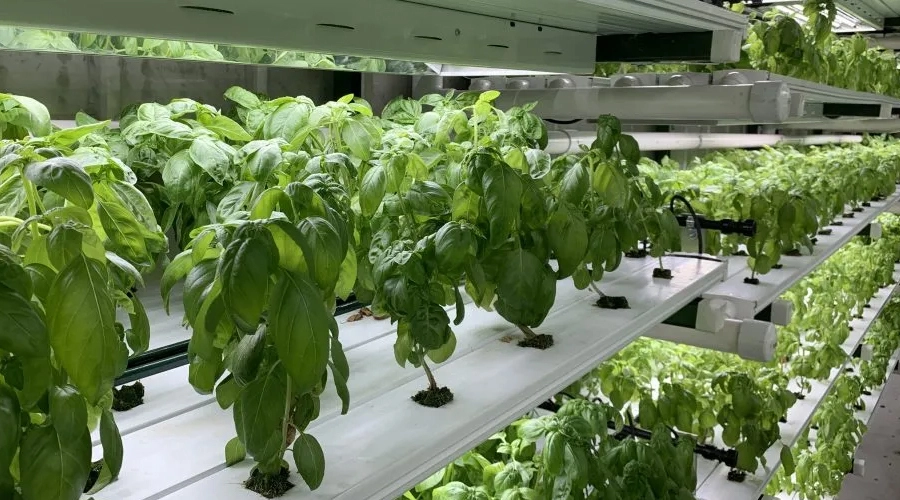
This dreamlike collaboration shifted the production of a large number of high-end equipment and consumables to the Chinese supply chain.
The CEO of PF also mentioned that China’s manufacturing industry is among the best in the world, with a robust and efficient supply chain.
The collaboration has proven to be highly effective, not only improving the scalability and efficiency of their product manufacturing but also accelerating the pace of equipment updates. Most importantly, it significantly reduced costs!
Ultimately, while North America may lead the way in vertical agriculture, continually refreshing industry records with technological innovations and setting an example for agricultural modernization worldwide, the true opportunity for the industrialization and significant development of vertical agriculture may lie in China’s fertile soil.
From seed breeding to production, processing, transportation, and final sales, China boasts a comprehensive supply chain system that effectively controls production costs and enhances market competitiveness.
Moreover, China’s top-notch infrastructure, including modern buildings, advanced facilities, and clean energy, creates excellent conditions for the establishment and growth of vertical agriculture.
Not only that, but an increasing number of retail giants are also venturing into vertical agriculture investments.
Dan Nielsen from Seasony company once shared on LinkedIn, “In the future vertical farming wave, those large chain retailers are likely to transform into leading investors in vertical farms.” Take Norway’s Coop company, for instance, which announced at the end of 2023 a collaboration with local Avisomo company to build a new factory project.
In the UK, Ocado (which invested in Infinite Farms in 2022 and previously invested in Jones Food Company), Walmart bet on Plenty in 2022, and Belgium’s Colruyt Group (which launched a new system developed jointly with MechaTronix this year). These are vivid examples of retail industry giants venturing into vertical agriculture.
When it comes to the cost issue of vertical farming, indeed, it can be significant, but this can be absorbed through balancing various aspects of the value chain. Either consumers pay for higher quality, or because the investment only accounts for a small portion of the end price, such as in upscale restaurants, consumers are more accepting of this.
When retailers deeply engage in and vertically integrate, they are willing to pay a little more because it allows them to get a piece of the supplier’s pie, even though it’s not a large amount, it still counts as internal revenue.
In summary, agricultural technology is flourishing worldwide, and in the future, leveraging its robust and efficient supply chain network along with increasingly sophisticated infrastructure, China has the potential to engage in deep cooperation with international advanced enterprises in the field of vertical farming.
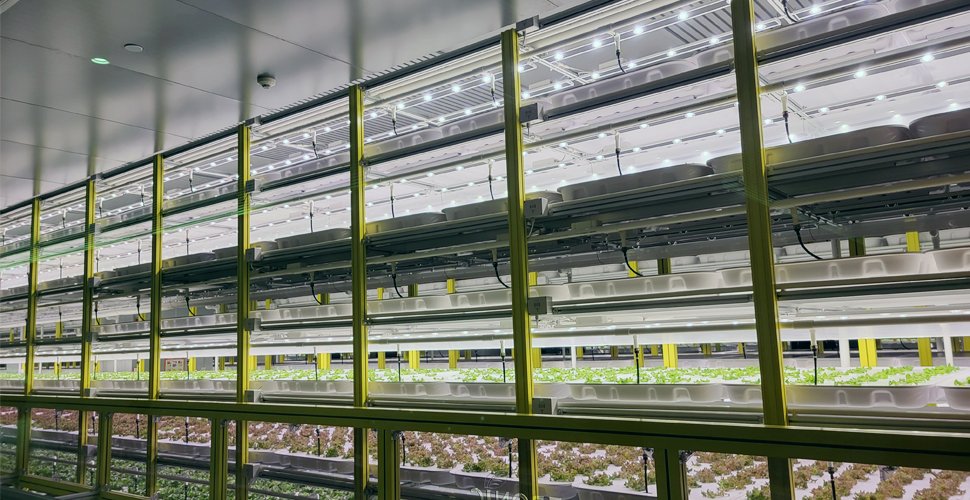
This collaboration could facilitate the transition of vertical farming towards greater industrialization and scalability.
Want to stay on top of the green living trend and experience the joy of growing your plants? Then you definitely can’t miss out on our SG40 vertical hydroponic garden! It’s not just a compact and handy home gardening tool, but also the secret weapon to becoming a modern urban farmer.
It is like a miniature plant dream factory that can be placed on your balcony, living room, or office, allowing you to embark on an exciting indoor vertical farming adventure. With easy operation, you can enjoy fresh, pure, and self-sustaining harvests of fruits and vegetables, filling your life with vitality and vigor.
Join us now and use the vertical hydroponic garden SG40 to kickstart your mini plant factory and embark on a wonderful experiment!

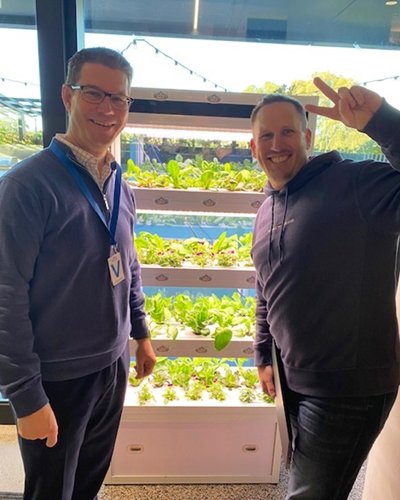

Jayes
As a Digital Marketing Manager at AUXGROW, Jayes combines a passion for hydroponic systems and expertise in LED grow lights. With hands-on experience and a deep understanding, Jayes guides you through the world of sustainable cultivation.

